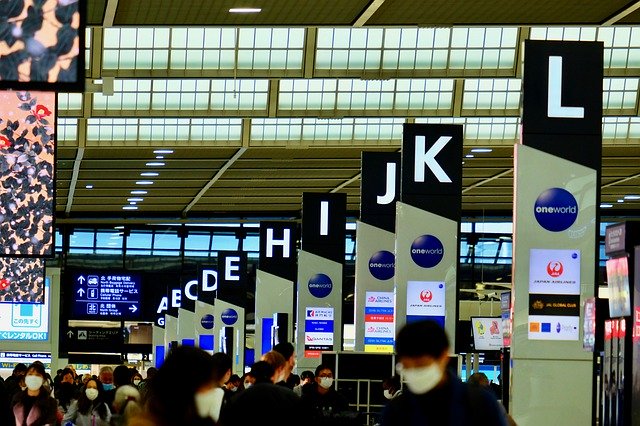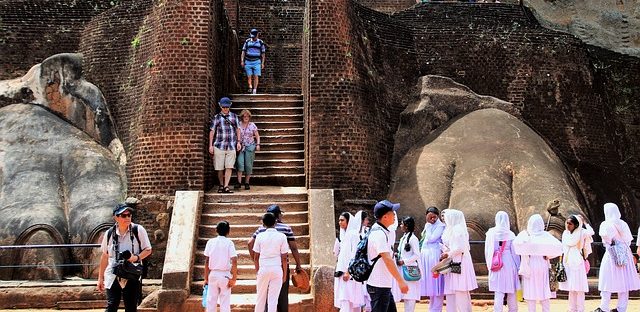TABLE OF CONTENTS Introduction Outbound Tourism of United Kingdom British Holidaymakers and Sri Lankan Tourism Prospects and Key Challenges Recommendations and suggestions 01. Introduction on United Kingdom and Its Tourism Industry When it comes to travel and leisure industry, the United Kingdom (UK) ranks as originate place of industrial revolution two centuries ago. Mass scale leisure travelling also started from the United Kingdom in 1841 when Thomas Cook introduced the leisure trips to his customers. There onwards, industry expanded best known as “Travel & Hospitality Industry” expanding its limits to infinity. While travel & tourism industry is one of the economically valuable industries in the world, the population of the United Kingdom with 65 millions of people (0.008% of the world population) had been performing well in the travel industry who used to have the biggest empire on earth less than a century ago. United Kingdom is the fifth largest economy in the world, comprising 3.5% of world GDP. When it comes to tourism, United Kingdom is the 4th largest tourism spender in the world according to UNWTO report. There are 70 million foreign trips recorded from the country. 1.1 Historical Relationship Of Sri Lanka & United Kingdom & Colonial Effect On The Tourism Industry In Sri Lanka Sri Lanka used to be a historical centre for international trading. Hence, there are number of ancient references to Sri Lanka by foreigners who visited the country such as Iban Bathutha, Robert Knox etc. However basic infrastructure and faculties needed for travel and tourism industry were built during the colonial time. According to Fernando, S., Bandara, J., & Smith (2006) initial infrastructure and amenities were built but not specifically aiming at tourism. Some luxury accommodation was built colonial time planters, governors and other visitors. Those luxury accommodation facilities were converted to star class hotels which were later used for tourism and hospitality industry. Galleface Hotel; iconic city hotel of Colombo was built by four entrepreneurs in 1864 and later converted into a luxury hotel. Mount Lavinia Hotel has glorious story behind its creation by Sir Thomas Maitland who used to be the governor of Sri Lanka. The Grand Hotel is another fabulous colonial hotel located in Nuwaraeliya used to be a holiday home of the 5th Governor of Sri Lanka Sir Edward Barnes. Apart of these star class luxury hotels, there are several guest houses located all around the country which were built during the colonial period. Apart from the accommodation facilities which help to establish the industry, the other important factor established by the British colonials were the basic infrastructure facilities which were developed later. The road network and most importantly railway network was built by the British directly advances not only the tourism industry but also every industry of the country. 2. Outbound Tourism of United Kingdom As stated above, the United Kingdom is the place which originated the leisure travel to the World. Being the country which started the industrialisation and which used to have the biggest colonial empire in the world, the wealth belonged to British people allow them to travel, explore and relax abroad. According to the statistics taken from Office for National Statistics UK, from 1980 to 2016 number of visits by the UK residents have grown up from 17 million to nearly 71 million which is an average annual growth of 4%. Most significantly, the spending done abroad by the UK residents have grown up from £2738 million to £ 43000 which is 8% of annual growth. The growth rate of spending is drastical during 80’s and 90’s and it has a negative affect or slow increase just before and after the recession in 2009. Despite the slowdown in economic growth, European outbound travel has grown by 3%. Globally, United Kingdom is one of the top five spenders in outbound tourism. Outbound travel is increasing steadily in the United Kingdom along with domestic and inbound tourism. According to the Office for National Statistics of the UK, residents of the United Kingdom made 70.4 million outbound trips in 2016, which is a 7% increase compared to 2015. Trips taken as holiday remained the main purpose of the trip for UK outbound tourists in 2016 followed by visiting friends and relatives and business trips. According to the World Travel and Tourism Council, the outbound tourism expenditure of UK travelers crossed US$ 70 billion and is projected to reach US$ 102 billion by the end of 2024. The outbound travel sector in the United Kingdom provides employment on par with other well-known and recognized industries, such as food and electrical equipment manufacturing and machinery and equipment industries. Relatively, high disposable income per capita is expected to drive the United Kingdom’s outbound tourism sector. Baby Boomers, with more free time and money for travel, are the most important segment of the UK outbound travel sector. The baby boomer generation has topped the market share of the UK outbound travel sector mainly attributed to the recent changes in pension annuities. According to the International Passenger Survey, the residents of UK prefer July and August for travel abroad mainly due to the long school holidays. Other popular months are April, May, June, October and November. January to March is a popular time for single-week ski trips and winter sun breaks to cheap destinations, usually as an extra holiday. Along with the international airports, the United Kingdom has many regional airports offering international services to important destinations which include Manchester, Nottingham, East Midlands, Liverpool and Leeds. Medical tourism across the globe also faced difficulties in the last couple of years. Outbound medical tourism from Britain has recovered slowly after the recession. Factors including poor National Health Service delivery, problems with National Health Service dentistry, and objections and delays relating to National Health Service has encouraged the medical tourism. Reforms have helped boost the outbound tourism sector in the UK. The residents of the UK seek cheap medical treatment abroad and look for countries such as Poland and Bulgaria for medical help. However, factors such as









